And my love affair of Oregon’s Willamette Valley continues. Not long after the likes of David Lett, Charles Coury and Dick Erath laid the foundation in the late 1960s, the first crop of pioneers put down roots to begin the greatness that the Willamette Valley would become. Along with names like Adelsheim and Ponzi, Susan Sokol and Bill Blosser saw the potential of the region. Not only has the Sokol Blosser Winery endured for fifty years, it is now in the capable hands of the next generation – siblings Alex and Alison Sokol Blosser, where they are planning for the next 50.
I was fortunate to sit down with the family – mom and dad, as well as current owners Alex and Alison – to learn more about the history of the winery as well as find out what’s on the horizon with the kids in charge.
The Beginning
From the very beginning, the decision to plant vineyards in Dundee Hills in 1971 “was crazy” shares Alison, since neither Susan nor Bill had any sort of farming, wine, or business background. She says it’s absolutely astounding that they are here 50 years later. But here they are! And thank goodness for that leap leap of faith.
But perhaps it wasn’t that far fetched after all. Before making the decision to plant a vineyard, Bill shares that he “always wanted to grow things. To be a farmer.” While he enjoyed gardening back during his time in Oakland, nothing really quite grabbed and excited him. But then during a study aboard experience in Europe, the light came on. All of the food and the wine and the beautiful European landscapes really opened his eyes. After returning home, that experience was all he could think of. “It was like a disease in me,” he recalls.
As luck would have it, his timing was pretty good. The wine industry was just coming back alive after prohibition during that time in the late 1960s. He had initially thought about putting down wine roots in California, but as he and Susan enjoyed Bourgogne, they wanted something as close to Bourgogne that they could get. And after talking to the likes of Erath, Lett, and the “whole lot, and they had the whole crazy, pioneer thing going” he was convinced and never considered California again.
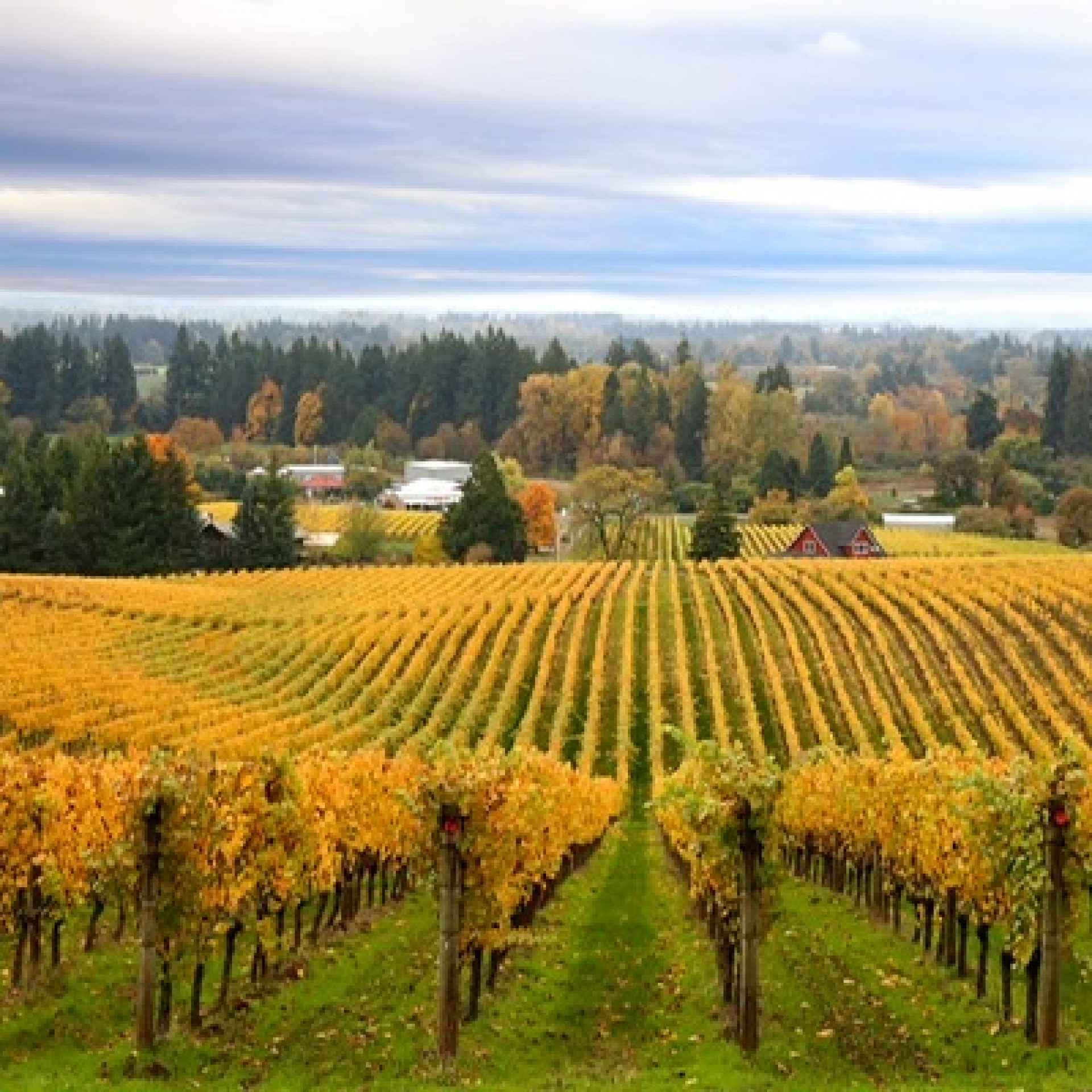
Of course, it wasn’t as simple as deciding to plant a vineyard. It was all well and good to figure out how to grow the grapes and make the wines declared Susan, “but it was another thing to actually sell the wine. People didn’t even know where Oregon was!” Susan says that they literally traveled with maps to show people where the state was located. Cause we know how great Americans are at geography!
But persevere they did. They made their first vintage in 1977 and opened the state’s first tasting room in 1978. Today, the Willamette Valley has over 900 wineries and more than 37,000 acres of planted vineyards.
Commitment to Sustainability
The Sokol Blosser family has always been keenly aware of the impact that farming and wine production has on the environment. Before it was even popular with the cool kids, they did everything they could to give back to the land. Some early efforts include the winery’s work with experimental cover crops to control erosion on hillside vineyards, which resulted in them being honored in 1983 by the U.S. Soil and Water Conservation District. And in 1998, the winery joined Low Input Viticulture and Enology (LIVE), an international sustainable viticulture program.
But these efforts were only the beginning. In 2002, Sokol Blosser become the first winery facility in the US to earn LEED (Leadership in Energy and Environmental Design) certification. This was also the year when they began to transition to organically farmed vineyards, receiving full USDA certification in 2005.
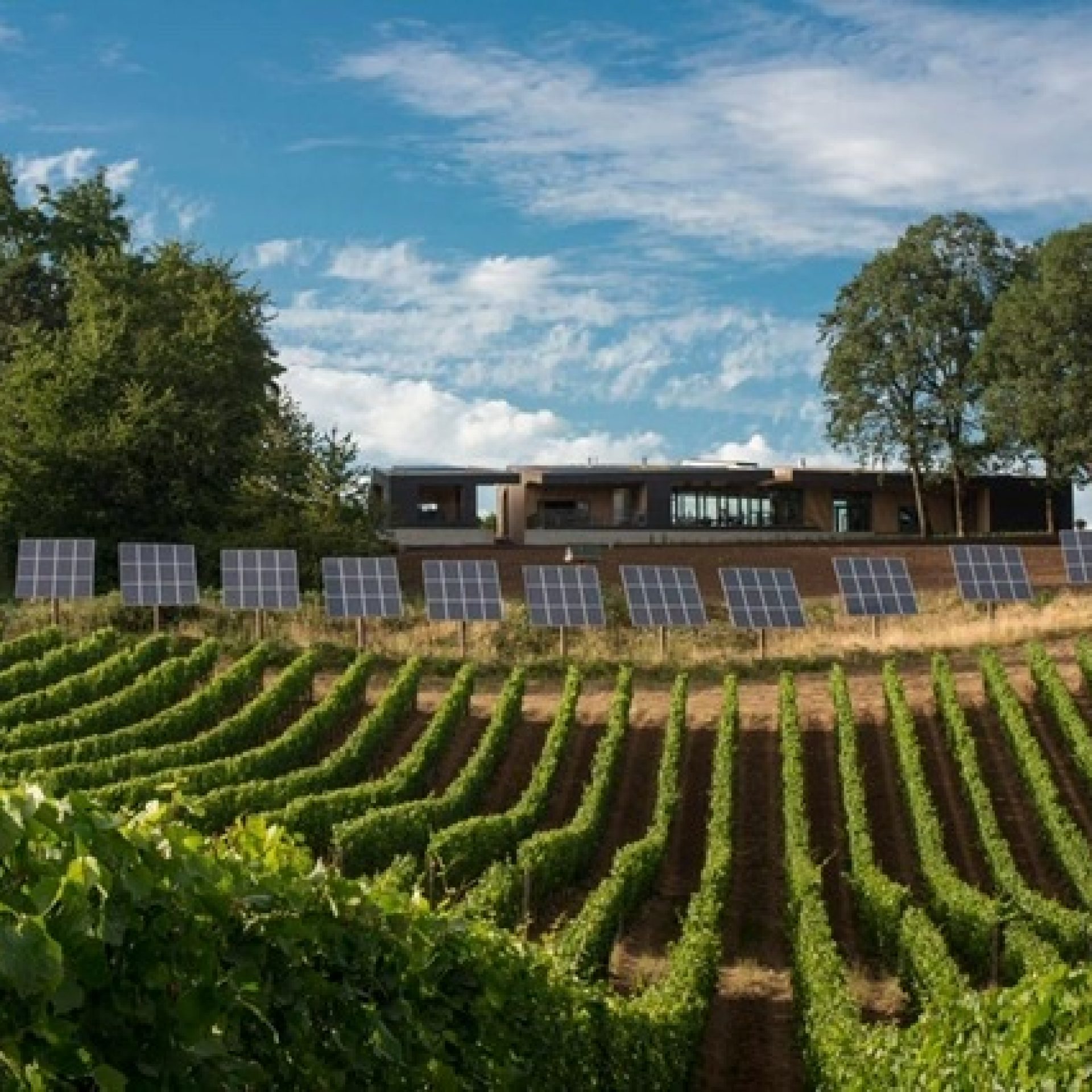
Over these years, the family has continued to implement sustainability measures with a laundry list of “good to the earth” practices including the use of biodiesel in tractors and vineyard trucks, using solar power for their tasting room, and recently becoming B Corp Certified in 2015. Even, the tasting room looks like it’s one with the earth.
Now & The Next 50 Years
Today, the kids are at the helm and building upon the foundation that Susan and Bill first established fifty years ago. In addition to being co-Presidents, Alex is the winemaker and Alison serves as the CEO. When they took over, Alex shares that they made two promises to their parents – that they would continue to raise the quality of the winery and that they would make sparkling wine. Bill says he always wanted to make sparkling wine, but “didn’t have the nerve” until Alex came along. Alison also added one additional promise that they made – “we promised not to kill each other.”
And Alex has certainly kept that promise and crafts a handful of sparkling wines. I’ve had a couple of Sokol Blosser sparkling wines in the past, including their delicious 2014 Sparkling Rosé of Pinot Noir. During the call with the family, we tasted the 2018 Bluebird Cuvée Sparkling Wine which is an interesting blend of Pinot Noir, Chardonnay, Early Muscat, Muller-Thurgau, and Riesling.
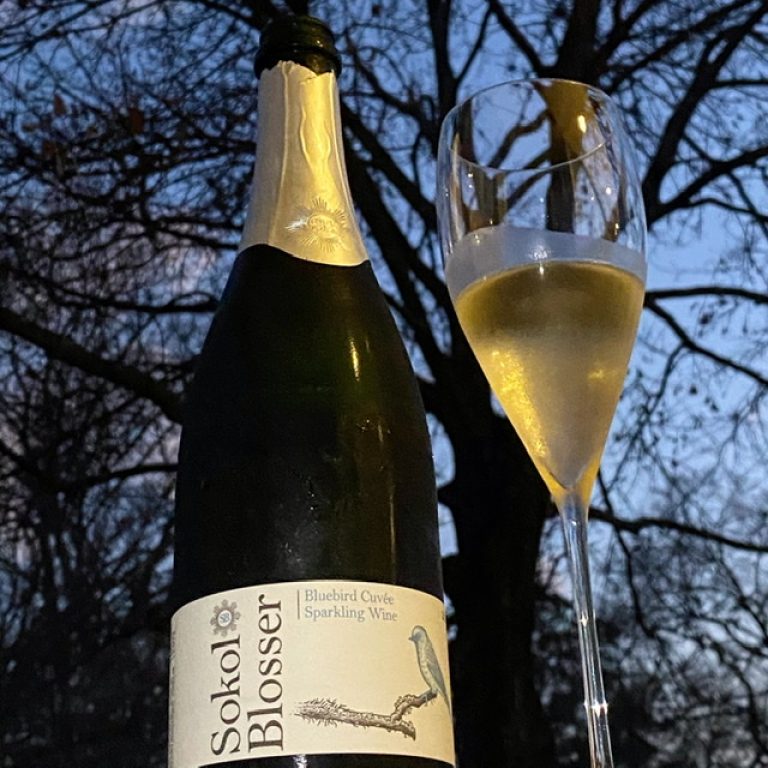
Alex shares that Sokol Blosser is squarely in the “reduction camp” when it comes to sparkling wines. He wants purity of fruit in his sparkling wine, as opposed to the toastiness that comes from oxidative aging. This one spent less than a year on the lees and certainly provides lots of fresh, vibrant fruit and bright acidity.
We also tasted through three of the winery’s Pinot Noir wines. The 2018 Dundee Hills Estate Pinot Noir ($42) is a cuvée of all of their blocks and sports ripe cherry and raspberry fruit, tea, and earth along with tart acidity and smooth tannins. 2018 is widely regarded as an epic vintage in the Willamette Valley. The 2018 Old Vineyard Block Estate Pinot Noir ($60), which has a retro label to pay homage to Susan and Bill, has more density and weight than the the first wine and greater color concentration, but is velvety and provides spice, red cherry, tea and cola and also more tannins.
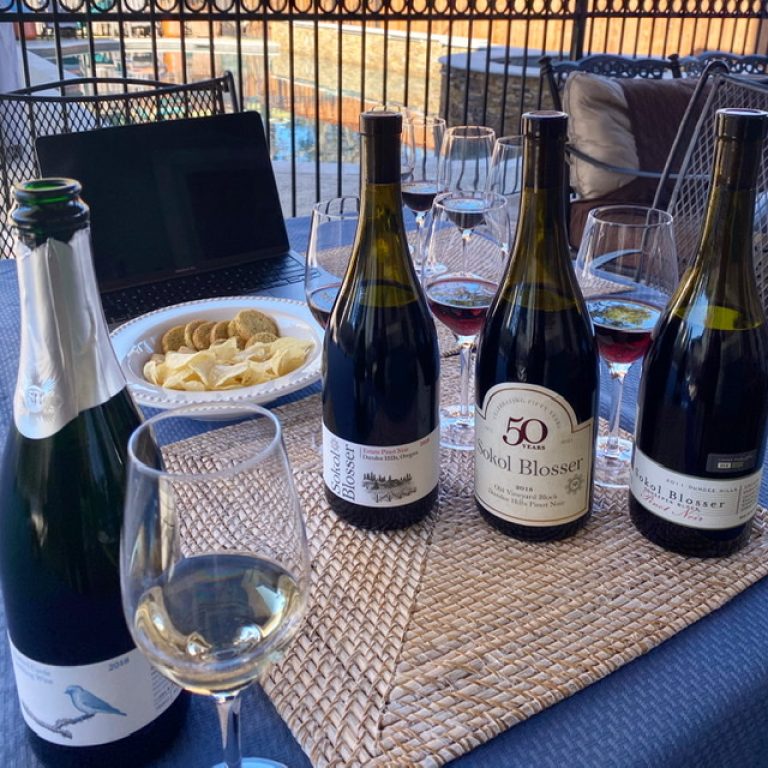
The final Pinot Noir we drank was the 2011 Goosepen Block Estate Pinot Noir ($80 on release, $110 now), which was named for Susan and Bill’s unexpected pet goslings. The geese were acquired to help with weeding, but ended up falling in love with their “parents” and never wanted to leave their side. They simply had no interest in controlling the weeds and just wanted to hang with their people. Susan says they ended up keeping one pair. The rest may have ended up in the freezer and in pillow cases. At any rate, 2011 was a challenging vintage, which makes it that much more special to a winemaker. The vintage was one in which the wines exhibited bracing acidity, which allowed the wine to age gracefully. While it showed some tertiary notes (and something meaty that was maybe smoky – bacon?) it still had lots of fruit left to enjoy. Very smooth with still very present acidity.
So what’s in store for Sokol Blosser in the next 50 years? Quality is something that they are enterally striving for and sustainability will always remain at the forefront of what they do. They will continue to look for more ways to reduce their environmental footprint and even have a new box wine series featuring their Evolution wines. I’m so ready to take one of these to the beach! And when it comes to innovation, they see mechanical harvesting in the near future.
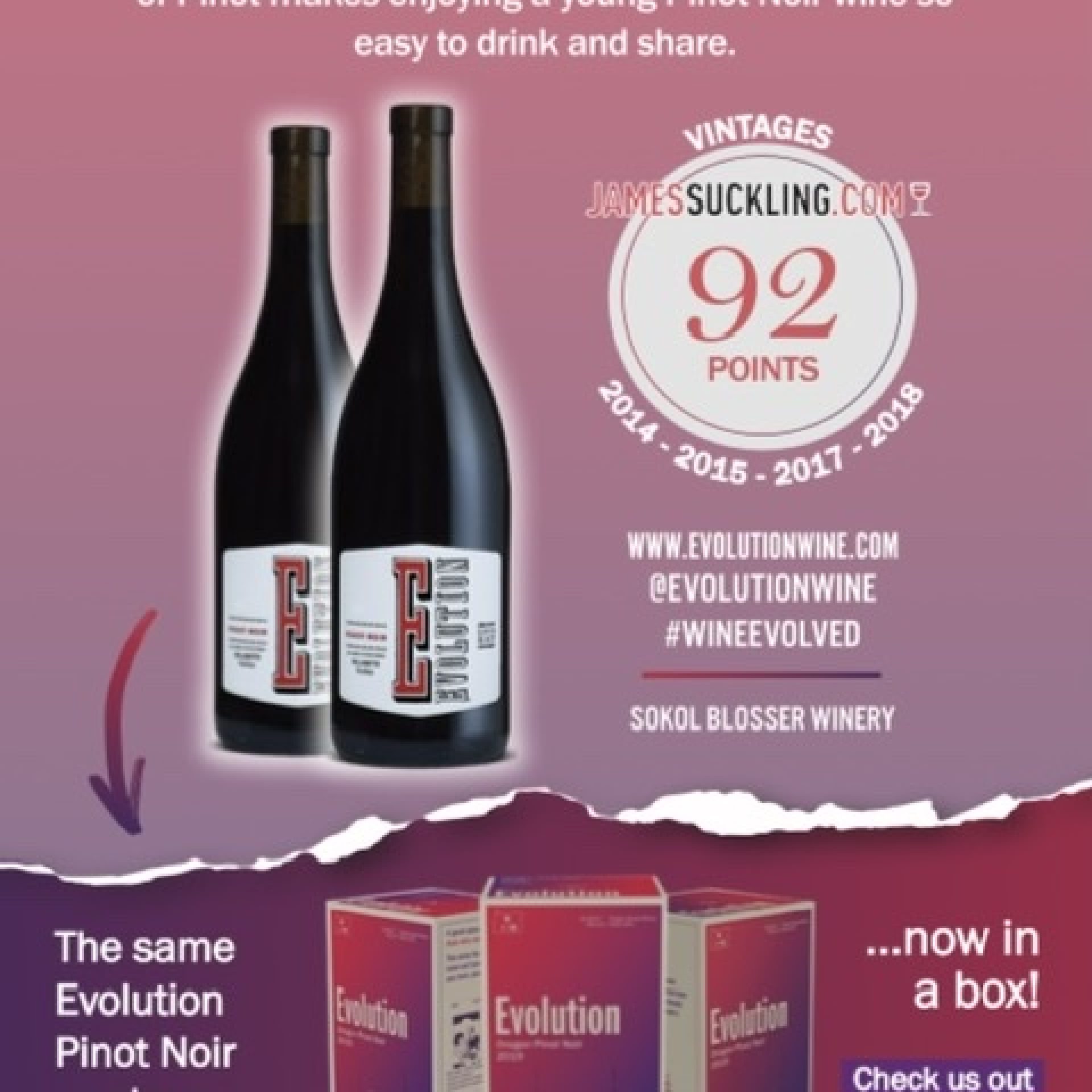
But one of the most important things they are doing is preparing the next generation, who currently range in age from five to twenty. All of the kids pitch in and are being exposed to the winery in way way or another. Above all, Alex and Alison view themselves as stewards of the land with the hope of handing off to the next generation with things in even better shape. I for one, can’t wait to see what’s next.
Happy 50th Sokol Blosser!
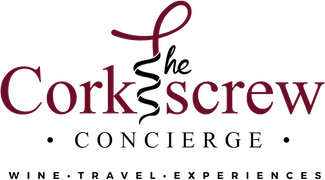
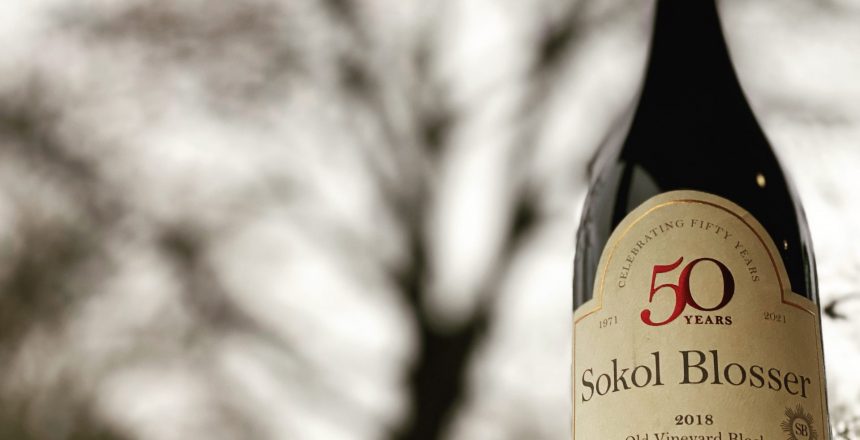
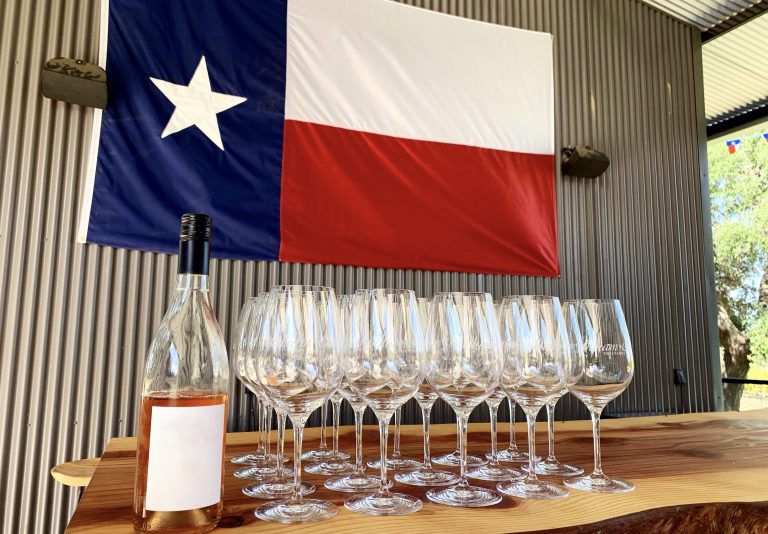
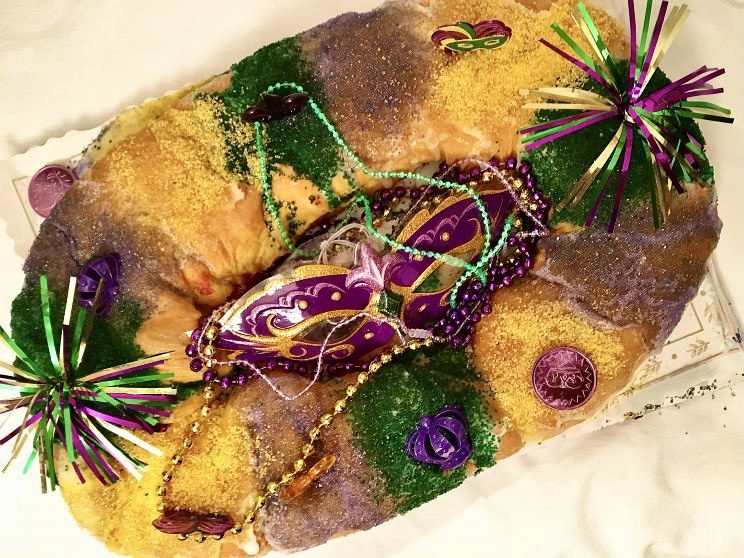

No Comments